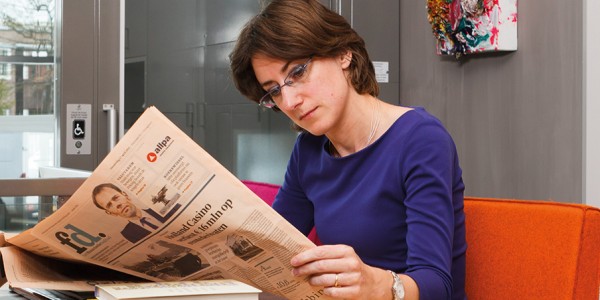
Global Parents’ Day
As of 2012, 1 June has been designated Global Parents' Day by the United Nations. This day is intended as an annual tribute to parents worldwide for all the efforts they make in the interests of their children.
Under Article 5 of the UN Convention on the Rights of the Child, parents have primary responsibility for the care, guidance and upbringing of their children. They should carry out this role in a manner appropriate to the child's age and developing abilities. This is no light task. Not for parents who are happy together and form a family with their children. Not for parents who have separated by mutual agreement and are implementing equal parenting after divorce. Let alone for parents who are caught up in a (conflictual) divorce situation while experiencing a rollercoaster of feelings. Think, for instance, of sadness alternating with relief and/or confusion alternating with impatience.
For parents who manage to come to constructive agreements with each other in the interests of their children, I take an extra deep bow today.
For parents in or after divorce who have not yet found a sustainable solution, I share three tips with an example based on the model of non violent communication according to Marshall B. Rosenberg to take advantage of:
- First, both investigate your own feelings and translate them into universal (unmet) needs (such as: freedom, connection and security);
- Communicate requests to each other at a specific needs level without judgements, blame or victimization and acknowledge each other's needs;
- Find ways that are good for both of you to fulfil those needs.
For example:
- You are impatient (= an angry feeling) because you long for a certain change (= a specific need for freedom).
The other parent is worried (= feeling scared) because they need stability (= a specific need for security); - One is asking for a change in the children's care arrangement. The other parent asks to maintain the current care arrangement of the children. You recognize that the other parent needs stability. The other parent recognizes that you need change.
- Maybe a gentle build-up to a change in the care arrangement is a way that is right for both of you to meet both needs?
Does following these tips lead to the intended result? Great, mission accomplished!
Do you find it difficult to recognize your own and each other's needs, and/or find (other) ways to meet both needs?
As a lawyer-mediator (prospective vFAS member), I can help you to recognize your needs and acknowledge each other’s to come to a level of connection necessary to come to a sustainable agreement. Please feel free to contact me without any obligation


